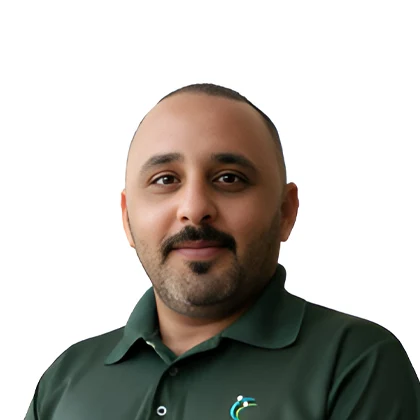Speech & language therapy is crucial for individuals with learning disabilities and limited communication skills. These patients often encounter difficulties in educational settings and when seeking employment, as learning disabilities can create barriers to a successful career.
To thrive, individuals need opportunities to develop essential written and oral language skills. Speech pathology, a key aspect of speech and language therapy, addresses the unique communication challenges faced by those with various disorders.
Working with skilled speech and language pathologists helps patients enhance their communication abilities, leading to improved academic performance and greater professional success. This support empowers individuals to integrate fully into society.


At the Cambridge Medical & Rehabilitation Center (CMRC), we prioritize enhancing communication skills for individuals, particularly those with learning disabilities. Our dedicated team of speech-language pathologists specializes in providing personalized therapy that addresses the unique challenges faced by each patient.
CMRC offers a range of services designed to support patients throughout their communication journey. Our speech and language therapy programs are tailored to help children and adults develop essential language skills, improve articulation, and enhance overall communication effectiveness.
We understand the importance of early intervention in speech and language development. Our therapists work closely with families to create customized plans that focus on strengthening communication abilities from a young age. This proactive approach aims to reduce future challenges in academic and social settings.
Our center is equipped with modern facilities that provide a comfortable environment for therapy sessions. We utilize the latest techniques and tools to engage patients effectively, ensuring they receive the highest quality care.
At CMRC, we believe in a holistic approach to rehabilitation. Our speech-language pathologists collaborate with other healthcare professionals, including occupational therapists and physiotherapists, to ensure comprehensive support for all patients. This teamwork fosters better outcomes and helps individuals reintegrate into their communities successfully.
We are committed to helping our patients achieve their communication goals. Through ongoing assessments and tailored strategies, our therapists track progress and adjust treatment plans to meet individual needs. By focusing on building strong communication foundations, we empower our patients to thrive academically and socially.
Experience the difference at CMRC, where we strive to create an environment that feels like your second home while helping you or your child navigate the complexities of communication challenges.
Communication Skills and Speech-Language Pathology
Communication is an essential component in making social connections and enjoying the world around us. When people can’t have effective communication, or they lose their capability to properly express themselves and understand others, they feel left out.
Efficient communication improves our ability to express even our basic desires, needs, and emotions, so that we don’t feel isolated, confused, or misunderstood. With active listening and constant communication, people can build stronger relationships and feel better about themselves. Regardless of what form of communication we use, whether it is body language or speech and language, it makes us feel complete. If anything hinders our ability to understand, hear, and express our thoughts, emotions, and ideas, that’s when we start to lose confidence in being a good communicator.
Speech-language pathology can be useful in numerous ways via therapies such as:
Articulation therapy
The primary goal of this form of therapy is to shape pronunciation and allow patients to articulate the correct sounds when trying to communicate. Not only does it improve your communication skills, but it also improves confidence. Articulation implements verbal communication strategies that help with speaking fluently, difficulties with vocal cords, or other problems in the body that interact with our clear voice.
Language comprehension therapy
This is a unique form of speech therapy that helps patients who’ve had developmental difficulties and language delays after a stroke or other health problems. Even though certain patients who receive this speech therapy can communicate, they can’t use proper strong communication skills. Because of autism, for example, they are unable to keep a job, carry out tasks, or pay attention.
Oral/swallowing and feeding therapy
Some patients may require a wide range of oral exercises to learn to be aware of the textures of the food they eat. These exercises can include facial massages, jaw, lip, or tongue exercises. A speech-language pathologist can suggest this form of therapy to boost the muscles for better drinking and eating control.
Why Do Some Children Need Speech & Language Therapy?
Communicating can often be difficult, particularly when we have to get out of our comfort zone. But, for certain individuals establishing a face to face communication and maintaining eye contact can be a real struggle.
It’s crucial to point out that there are individuals who will find it very difficult to simply talk with friends, family, or on the phone, which can drastically impact their quality of life. That’s where a speech-language pathologist can be helpful.
Not every child will develop communication skills in the same way. Some may have trouble listening carefully, may experience cognitive delays or listening impairments. Speech and language therapy can be useful for multiple reasons, which include:
- Breathing difficulties
- Autism
- Problems with motor planning
- Hearing impairments
- Traumatic injury
- Weakened oral muscles
- Delays in intellectual expression and thinking
Certain individuals with serious communication disorders might not know how to use their facial expression or writing skills. A speech-language pathologist can work through these barriers to help patients establish a normal form of verbal or written communication, based on the patient’s situation. At first, the pathologist can use toys, like a communication board, for example, to help with language development through games.
For children experiencing any of these impairments, it’s better to start the treatment as early as possible, often before they are five years of age. It’s possible to improve their speaking, writing, and listening skills when they are older, it will just take a little more time to notice the progress and change habitual patterns.
Learning Disabilities and Speech-Language Pathology
A language-based learning disability is a processing disorder that impairs the patient’s ability to spell, write, speak, listen, or reason. It creates a major inconsistency between a child’s potential to learn and achieve their goals. Children with dyslexia, for example, are more of a visual-spatial learner than a traditional one.
These learning disabilities tend to surface when the child is very young. This hinders the child’s capability to produce written or verbal age-appropriate content. Some of the most prevalent signs of learning disabilities are:
- Overall inability to communicate both verbally and on paper
- Trouble understanding and remembering new words and sentences
- Difficulty memorizing rhymes or songs
- Trouble putting words/letters together and pronouncing them correctly
- Inability to match a letter with a correct pronunciation or a sound
- Difficulty learning the alphabet
Often these learning disabilities can start to affect other spheres of life, which to healthy children will sound simple. This includes trouble telling right from left, telling the time, figuring out numbers, and more.
How Can Speech Therapy Help?
When a child has a learning disability, they won’t be able to learn reading writing the traditional way or at the same rate as any other child their age. The reason for that is relatively simple. Children with learning disabilities don’t process stimuli; instead, they need unique, specifically tailored instruction strategies to overcome their reading disability.
A speech-language pathologist can help identify all of the child’s weaknesses and strengths that affect their language development. Depending on the patient’s type of learning disability, they will plan out remedial tactics to improve motor skills, writing, and reading comprehension to help them develop cognitive, social skills.
It’s important, however, to start with therapy early on. If the learning difficulties remain untreated for many years, the problems can progress into high school and even adulthood. The earlier these problems are managed, the better.
If the patient starts with speech therapy at a young age, they can use the techniques they’ve learned in therapy throughout their life. That way, they will have multiple opportunities to improve their oral and written vocabulary.
How Does a Speech Therapy for Learning Disabilities Looks like?
The way the speech and language difficulties are treated will heavily depend on the specific learning disability a patient is diagnosed with. How severe the disability may be, the patient’s age and language delays will all have a major role to play in identifying the best form of treatment.
What happens at the session will depend on plenty of variables, like the duration (whether it is 30min or 1-hour long session), location, and setting.
Some sessions are private, which means the patient is the only one participating in the education program, and the therapist is paying attention only to that patient. A different setting would be a group session, where more patients get to express their learning difficulties and share their experiences, whether through verbal or written expression.
The rest of the session will depend on what the patient is dealing with. Learning disabilities will start to impair countless mental processes. One of the most common learning disability is dyslexia; then you have attention deficit hyperactivity disorder ADHD, dyscalculia, dysgraphia, and processing deficits.
For example, patients might have trouble pronouncing words and will engage in rhyming, clapping, or tapping activities. Others, on the other hand, maybe dealing with ADHD, which will force them to act out regardless of the consequences.
Therapists who are working with patients that can’t follow a plotline or understand the meaning of a story will engage in activities that will focus only on solving this particular problem.
In other words, the session will be tailored to each individual based on their physical and psychological needs. A speech-language pathologist involved with the sessions will most likely give some form of indication on the current progress and how the session should be changed to better fit each individual.
Related Specialists
Frequently Asked Questions
Speech-language pathology is a field focused on diagnosing and treating communication disorders. Speech-language pathologists help individuals improve their ability to communicate effectively through various therapies, addressing issues like articulation, language comprehension, and oral motor skills.
Children may need communication therapy due to difficulties in verbal expression, listening impairments, cognitive delays, or conditions such as autism. Early intervention can help improve their speaking, writing, and listening skills, enhancing their overall quality of life.
Common signs of learning disabilities include difficulty understanding and remembering new words, trouble communicating both verbally and in writing, challenges with rhymes or songs, and issues with spelling and pronunciation.
Speech therapy can help children with learning disabilities by identifying their strengths and weaknesses. Tailored strategies are implemented to improve motor skills, reading comprehension, and social skills, supporting their overall language development.
A typical speech therapy session varies based on the individual’s needs and the severity of their learning disability. Sessions may include one-on-one or group activities tailored to address specific issues, such as pronunciation exercises or comprehension activities, with progress assessments provided by the therapist.


